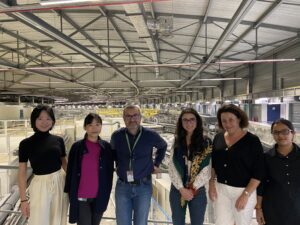Assessing Socio-Economic Impact of Research Infrastructures | Research Project
Have you ever heard of “Socio-economic Impact”? How can this be measured, described and classified for a research infrastructure such as the ESRF?
Socio-economic impact studies measure and monetise the economic, social, environmental and financial costs and benefits, considering all stakeholders, of a project or public policy over its lifetime.
The research infrastructures (RIs) are organisations that enable the research community to use specific facilities, resources and services in order to accelerate scientific achievements and promote sustainable research.
One research institute has potential to help thousands of researchers take a step forward with their research, sometime its baby steps but, for the lucky few, that step was one towards a high impact factor publication, and even along the path that takes them towards a Nobel prize. Therefore, measuring an RIs output is not an easy or even obvious thing to do.
There exists a correlation between infrastructure investment and development outcomes. But the real challenge is to establish an evidence-based analytical framework, by valuing both quantitative and qualitative methodologies.
Assessing the Socio-economic Impact of the ESRF is a one-year research project, supported by Streamline, which began in July 2022. It aims to assess the impact of the ESRF regarding its broader societal values (including social, economic and environmental) and a potential framework for future impact assessments. Through representative case studies, the project is also curious to discover the various pathways in which impacts are generated and cultivated. Data will be collected from interviews with key actors at the facility, as well as a database extracted from the Joint ILL-ESRF Library, the newly developed PUMA publication matching software, and other existing resources.
 At the ESRF, Junhanlu Zhang is the impact analysis specialist working with Ennio Tito Capria, Deputy Head of Business Development Office, and in collaboration with a team of researchers at GEM (Grenoble Ecole of Management) formed by Corine Genet, Arusyak Zakaryan, Xinyu Guo and Renuka Devi Somasundaram Karthikeyan.
At the ESRF, Junhanlu Zhang is the impact analysis specialist working with Ennio Tito Capria, Deputy Head of Business Development Office, and in collaboration with a team of researchers at GEM (Grenoble Ecole of Management) formed by Corine Genet, Arusyak Zakaryan, Xinyu Guo and Renuka Devi Somasundaram Karthikeyan.
To learn more about the project, click here.